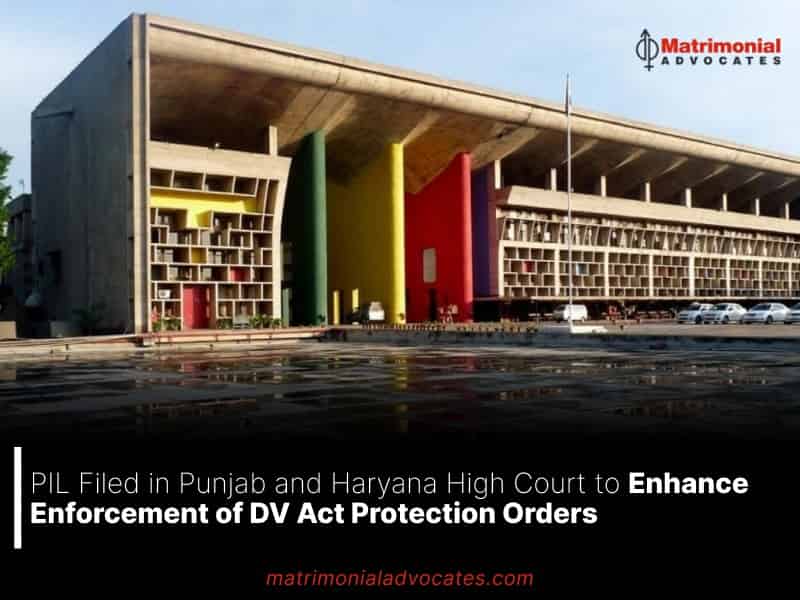
The matter is listed for hearing next on September 26.
A Public Interest Litigation (PIL) has been filed with the Punjab and Haryana High Court, requesting a directive to establish provisions or rules for the mandatory enforcement of protection orders under the Protection of Women from Domestic Violence Act, 2005 (DV Act) [Sharmila Sharma v. Union of India and others].
On August 13, the Division Bench, consisting of Chief Justice Sheel Nagu and Justice Anil Kshetarpal, directed the Central Government, the states of Punjab and Haryana, and the Union Territory of Chandigarh to respond to the petition.
The case is scheduled for the next hearing on September 26.
The petition was filed by advocate Sharmila Sharma, who reported encountering numerous cases where victims of domestic violence were suffering due to the failure to enforce orders issued under the DV Act.
“That beneficial legislation was framed by the State for ensuring effective protection rights to the women are victim of domestic violence, but surprisingly no provision for mandatory execution has been legislated in the Act and orders passed under the provisions of DV Act can be enforced only by resorting to the provisions of Cr.P.C (BNSS),” the plea explains.
The petition points out that Section 20(6) of the DV Act allows a magistrate to enforce a monetary relief order without an application if the respondent is a salaried worker or creditor. However, this power is rarely used.
It also mentions that this section doesn’t help when the respondent is self-employed. In such cases, victims need to use Section 128 of the Code of Criminal Procedure (CrPC) or Section 147 of the Bharatiya Nagarik Suraksha Sanhita (BNSS) to enforce the order for monetary relief.
“Further Section 31 of the D.V. Act defines penalty for breach of protection orders by the respondent, but this provision only provides for the penalty for non-compliance but does not provide any procedure for implementation of the same,” the plea contends.
Sharma believes that the DV Act has problems and isn’t working well in several ways, both in its process and substance.
To fix this, she points to Section 37 of the DV Act, which allows the Central government to create rules to better enforce the law.
“But no such rules for of protection orders have been legislated till date and very purpose of enactment of the Act is defeated in absence of mandatory provisions for execution of the protection orders passed under DV Act,” the plea states.
Sharmila’s petition also says that Protection Officers, as required by Section 8 of the DV Act, haven’t been appointed in every district of Punjab, Haryana, and Chandigarh.
In response, the Haryana government told the Court that Protection Officers are in place in all 22 districts of Haryana, and Anganwadi workers have been assigned as Village Level Protection Agents.
Advocate Sharmila Sharma appeared in person.
Additional Advocate General Deepak Balyan represented the State of Haryana. Additional Advocate General JS Gill represented the State of Punjab.
Additional Solicitor General Satya Pal Jain with advocate Neha Sharma represented the Union of India.
Advocates Abhinav Sood and Arsh Bir represented the Union Territory of Chandigarh.





